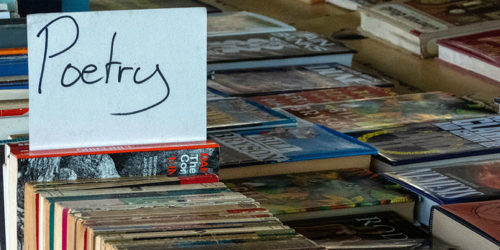Some of the greatest bestselling novels were initially rejected
You'd be surprised at the pitfalls some of the greatest works of our time faced. What bestselling novels initially got rejection letters?
The history of the paperback
Saturday 30th July is Paperback Book Day. Learn about the history of this medium.
The best UK spots for literary tourism
Literary tourism is a way for book lovers to travel. Here are some locations that inspired some of the greatest literary works.
A lesson from Nabokov: how to write for the senses
Metaphors are one of the most powerful devices. Nabokov was synaesthetic. What is synaesthesia and how can it help you craft interesting metaphors?
The greatest insults in Shakespeare
William Shakespeare was deft with wonderfully worded insults in his works. Here are some of our favourites.
Great podcasts to improve your writing skills
Looking for inspiration in an easy-to-consume format? Look no further than writing podcasts. We've rounded up a handful we particularly like.
Words of advice from the most successful authors
Some of the greatest authors are no longer with us, but their words live on. We’ve looked at some bestselling authors and are sharing their writing advice.
Imagism: a minimalist movement that changed poetry
In the early twentieth century, a poetry movement called Imagism revolutionised English literature. We’ll cover what it was, who practised it and what impact it’s had on modern poetry.
10 English words with surprising etymology
The practice of etymology is uncovering the truth by tracing the root of a word. Find out some surprising word origins.
Feminist placards: the language of protest
Banners have a way of bringing together feminists from all walks of life. We’ll look at a handful of these and examine the power of their feminist language.
Pandemic clichés and how to avoid them
We’ll explore how pandemic clichés become so prevalent and why you should do your best to avoid them. Then we’ll highlight some useful alternatives.
10 British English phrases
There are some phrases in British English which anyone who didn’t grow up in the UK would struggle to understand. We’ll outline a handful of these and explain their meanings and origins.













